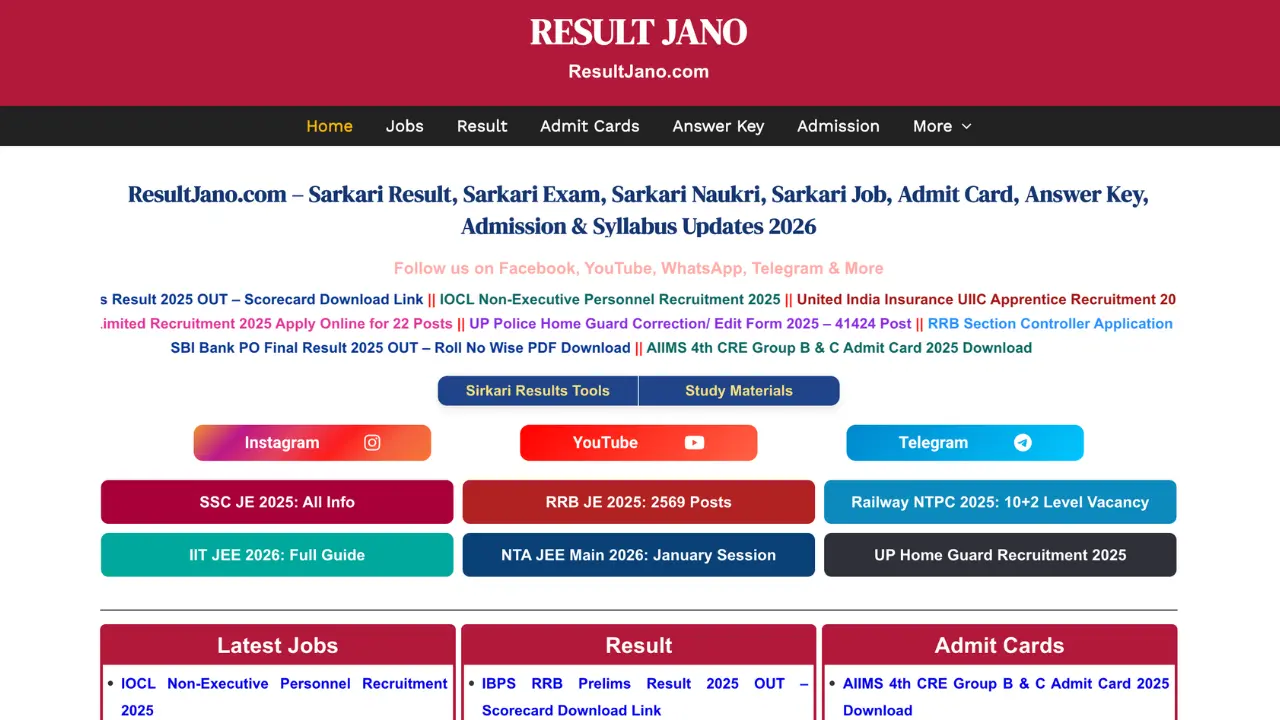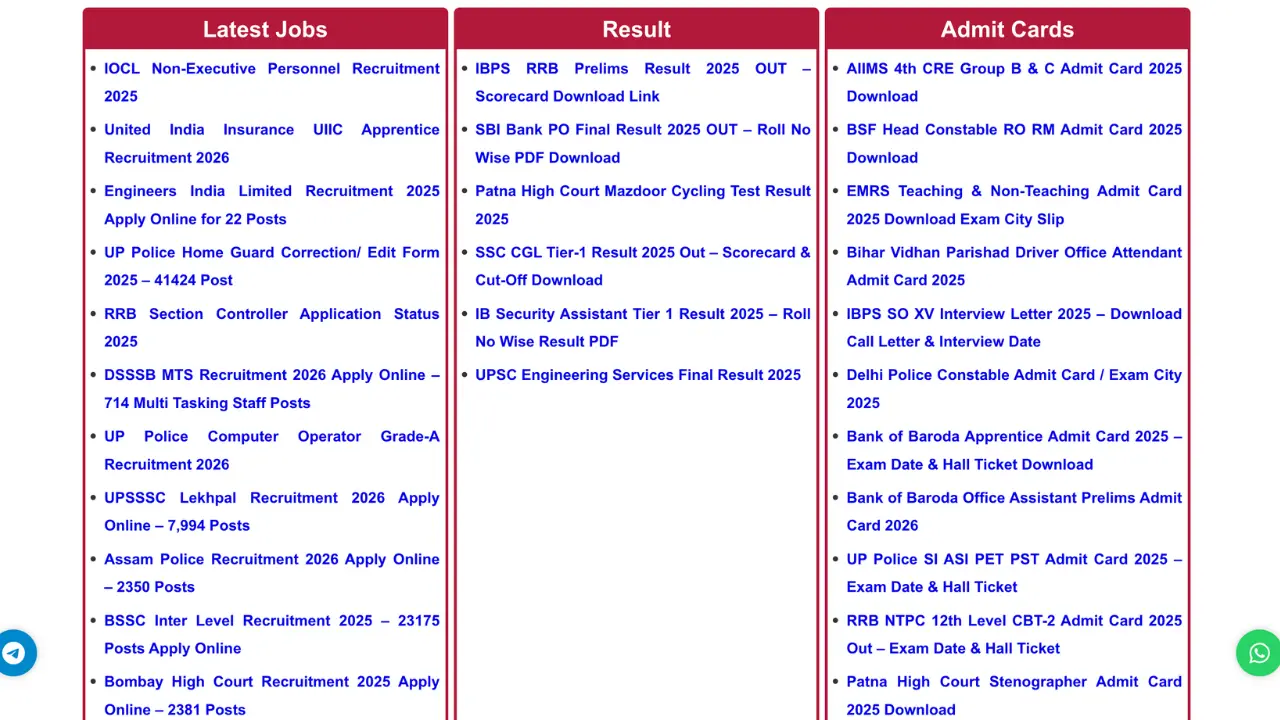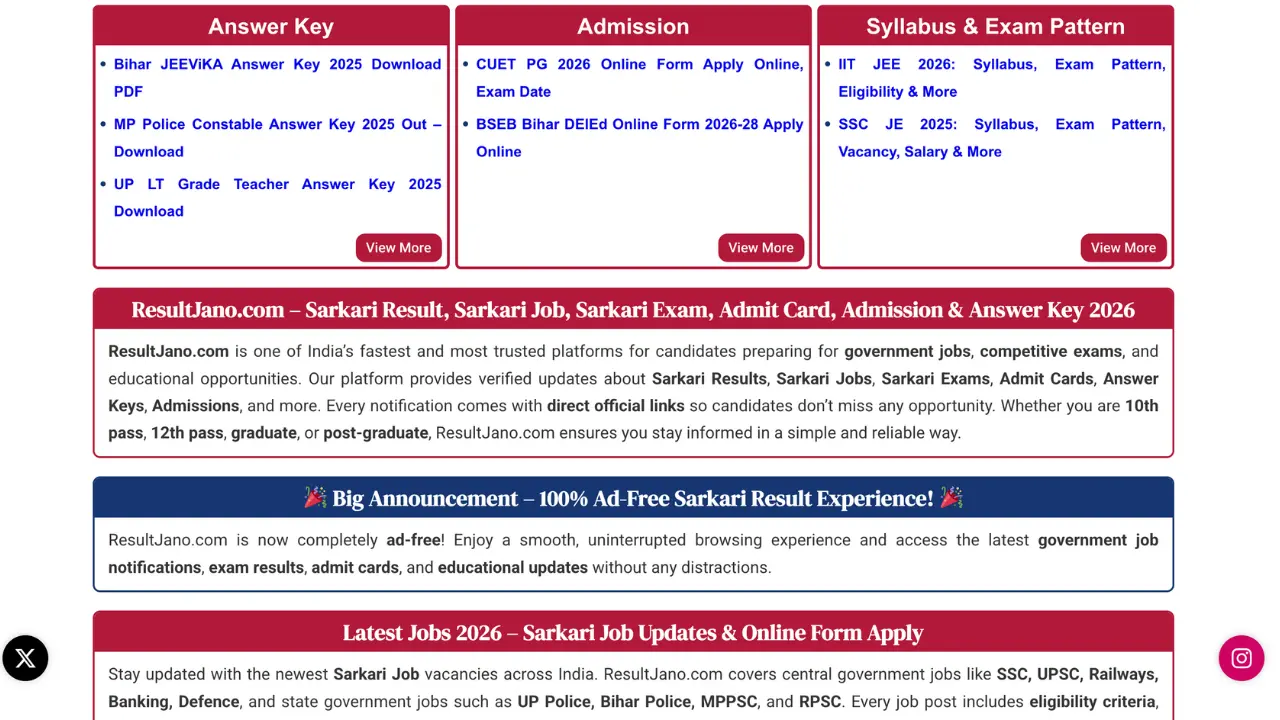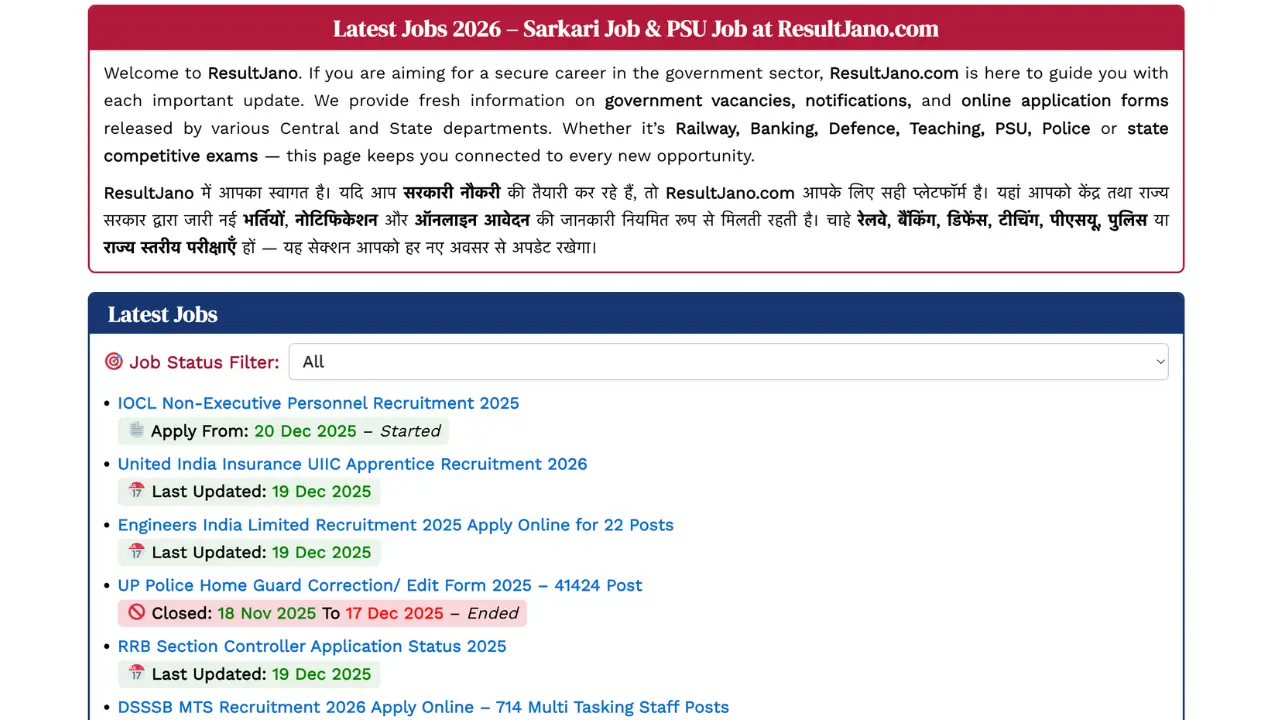ESE NOTES – One Destination for All Competitive Exams
📄 Complete Syllabus • ⏱ Exam Pattern • 📝 PYQs (10+ Years) • 🧠 10K+ Quizzes • 📘 Topic-wise Notes • & More
- 📚 SSC – CGL, CHSL, MTS & More
- 📚 RRB – NTPC, Group D, ALP & More
- 📚 UPSC – CSE, CDS, CAPF & More
- 📚 State PSC – UPPSC, BPSC, MPPSC & More
- 📚 Banking – IBPS PO, SBI Clerk & More
- 📚 ESE/IES – Technical + GS Full Coverage
- 📚 GATE – All Branches Covered
- 📚 More – Popular Exams

🏆 Exams Overview
Find all competitive exams, syllabus, previous papers and study material in one place.
📁 Exam Categories

CalculationClub.Com
If you’re looking for a website that provides all types of calculators and conversion tools, then CalculationClub.com is your final destination. Whether you are a student, professional, or just curious, CalculationClub offers a variety of tools to help you solve any type of problem. Our collection includes unit converters, random generators, text tools, and much more.




ResultJano.Com
If you’re looking for a website that provides all types of government job updates and exam-related information, then ResultJano.com is your final destination. Whether you are a student, job seeker, or preparing for competitive exams, ResultJano offers the latest notifications, admit cards, results, and much more.
Visit ResultJano.ComSUBJECT
In curve we details discuss about curve, type of curve, basic definitions of curve, elements of circular curve, apex distance, chainage of tangent points, intermediate chord length.
Tacheometry (Tacheometer, Stadia Rod, Theory of Tacheometer, Distance and Elevation Through Tacheometer, Etc)
In tacheometry we details discuss about tacheometry, instrument used in tacheometry, tacheometer, stadia rod, stadia system, fixed hair system, movable hair system, tangential system, subtense bar system, theory of tacheometer, distance and elevation through tacheometer when a staff is vertical & staff is perpendicular to line of sight.
Trigonometric Levelling (Determination of Elevation of Object Of Various Situation)
In trigonometric levelling, we details discuss about trigonometric levelling, determination of elevation of object when its base are accessible & not accessible & when the two instruments are not in the same vertical plane.
Measurement of Area and Volume (Mid Ordinate Rule, Average Offset Rule, Trapezoidal Rule, Simpson’s Rule)
In measurement of area and volume, we details discuss about mid ordinate rule, average offset rule, trapezoidal rule, simpson's rule for measurement of area & trapezoidal rule / end area method, prismoidal / simpson’s rule for measurement of volume.


